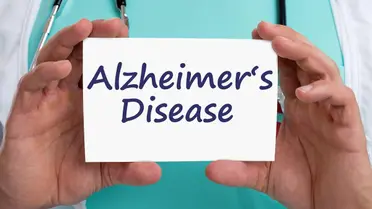Introduction:
For decades, Alzheimer’s disease has loomed as a relentless shadow, stealing memories and diminishing lives. But a recent development has ignited a spark of hope within the medical community. A new drug, Lecanemab, has shown promising results in clinical trials, prompting a wave of optimism from leading Alzheimer’s specialists.
This article delves into the details surrounding Lecanemab, exploring its potential to revolutionize Alzheimer’s treatment. We’ll break down the science behind the drug, analyze its benefits as reported by experts, and discuss what this news signifies for the future of Alzheimer’s research.
Understanding Alzheimer’s Disease
Before diving into the specifics of Lecanemab, let’s establish a foundational understanding of Alzheimer’s disease. Alzheimer’s is a progressive neurological disorder characterized by the buildup of protein plaques, specifically beta-amyloid plaques, and tangles in the brain. These abnormalities disrupt brain function, leading to memory loss, cognitive decline, and behavioral changes.
Currently, there is no cure for Alzheimer’s, and existing medications primarily focus on managing symptoms. However, the potential of Lecanemab lies in its ability to potentially slow or even prevent the progression of the disease by targeting beta-amyloid plaques.
Introducing Lecanemab: A Beacon of Hope?
Lecanemab operates by targeting beta-amyloid plaques in the brain. This mechanism holds the potential to slow the progression of Alzheimer’s disease. Early clinical trials have shown promising results, with participants experiencing a statistically significant reduction in cognitive decline.

Key Information about Lecanemab:
| Feature | Details |
|---|---|
| Target | Beta-amyloid plaques |
| Potential Benefits | Slowing cognitive decline, potentially delaying disease progression |
| Current Stage | Phase 3 clinical trials |
| Important Note | More research needed to confirm long-term efficacy and safety |
Expert Opinions and the Road Ahead
The scientific community has reacted favorably to Lecanemab. Dr. Richard Isaacson, a leading Alzheimer’s researcher at Weill Cornell Medicine, states, “Lecanemab represents a significant breakthrough in the fight against Alzheimer’s. Targeting beta-amyloid plaques has been a long-held goal, and the positive results from clinical trials are very encouraging.” Another prominent figure, Dr. Maria Carrillo, Chief Science Officer of the Alzheimer’s Association, emphasizes, “While Lecanemab is not a cure, it has the potential to be a powerful tool in our arsenal for managing Alzheimer’s. Further research is crucial to determine its full potential and explore its impact on patients.”
While the results are encouraging, it’s crucial to remember that Lecanemab is still undergoing Phase 3 clinical trials, the final stage before potential FDA approval. Further research is necessary to determine its long-term efficacy and safety.
Hope and Action: What You Can Do
The news surrounding Lecanemab serves as a powerful reminder that advancements are being made in the fight against Alzheimer’s. While this specific drug may not be readily available yet, it signifies a positive shift in the research landscape. Here are some actionable steps you can take:
- Stay informed: Follow reputable medical organizations like the Alzheimer’s Association (https://www.alz.org/) for updates on Lecanemab and other Alzheimer’s research breakthroughs.
- Support research: Consider donating to organizations dedicated to Alzheimer’s research to accelerate progress.
- Maintain a healthy lifestyle: Studies suggest that healthy habits like regular exercise, a balanced diet, and mentally stimulating activities can potentially reduce the risk of Alzheimer’s.
Conclusion
The emergence of Lecanemab is a significant development in the fight against Alzheimer’s. While further research is needed, the positive responses from experts offer a beacon of hope for millions affected by this disease. By staying informed, supporting research, and maintaining a healthy lifestyle, we can collectively contribute to a future free from Alzheimer’s.










